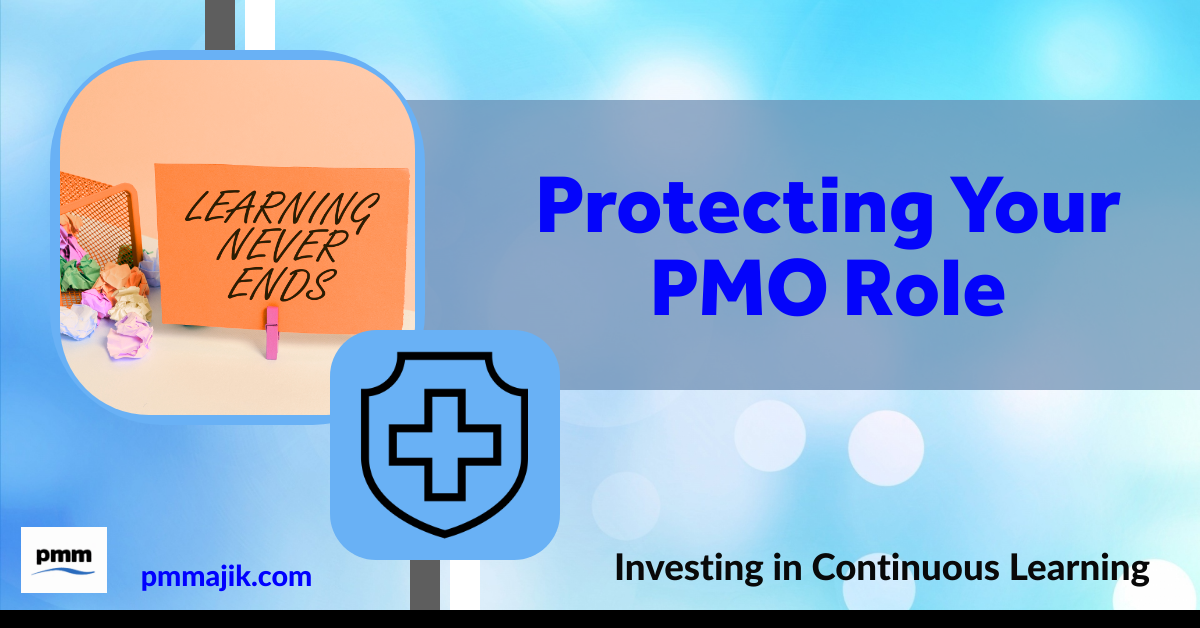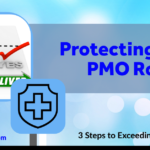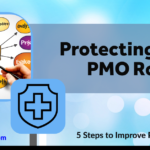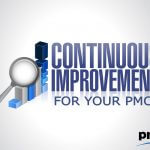You need to make sure that you remain valuable and relevant in your project management office (PMO) role. With budget cuts, efficiencies, and redundancies on the horizon for many businesses, you can help protect your PMO role by investing in continuous learning.
When you grow and develop in your job, you become an asset that the business will not want to lose. You will be able to take on more challenging tasks and contribute more to the return on investment of the PMO.
To help you understand how to keep growing in your PMO role, we’re going to look at:
- Six options for continuous learning in a PMO
- How you can find these learning opportunities
- Why it’s important to focus on your career development
The types of continuous learning available to PMO professionals
It’s important to stay on top of trends and new best practices in the world of PMOs. Things can change, technology can develop and disrupt longstanding processes, and you can easily find your knowledge to be obsolete.
Here are six ways you can invest in your continuous learning in your PMO:
- Professional certifications – there are a range of PMO-related certifications you can choose from, depending on your industry, location, and the project methodology you want to work with. Invest your time in earning and maintaining a recognised qualification.
- Industry conferences and events – you can stay in the know about what’s going on in project management and your industry in particular. If your PMO is already facing budget cuts, look for online events to reduce costs.
- Online education – along with professional certifications, you can take short online courses to target specific skills or software you need. Explore if your organisation has a learning management system and look for free courses on popular sites such as Coursera or Lynda.
- Industry subscriptions – there are plenty of online resources to read about project management trends. Consider visiting this blog often, and look at other publications such as PMI Today or Project Manager Today.
- Professional networking – your internal network is important, and your external network can add significant value, too. Network with other PMO workers and thought leaders on platforms like LinkedIn and Twitter to understand how the industry is advancing.
- Mentorship – seeking out a mentor within your business or through your wider network can help you learn from people with different skills. You can figure out where to target your professional development with their guidance.
Where to find opportunities for continuous learning in a PMO
A good PMO and business, in general, will already have options for career development in place. First, look internally at the learning resources available and take advantage of what is available to you.
As you build your professional network, you should also learn about the conferences and workshops that could benefit you. When asking your leader to pay for a conference or other training, be sure to emphasise the net benefit it will have and how you will be more productive in your role.
With the growth in online learning platforms, such as Coursera and Udemy, you may be able to find free courses as well. A lot of the free classes will lead to more in-depth, paid programmes – take the free course, demonstrate that it adds value to your role, and it can help you get funding for the next level.
Why do I need to invest in continuous learning to protect my PMO role?
No business wants to cut jobs, but sometimes budget restraints and fewer clients can mean headcount needs to be reduced. You need to be able to demonstrate that you:
- Add value to your role
- Are more productive
- Can adapt to changing PMO needs
- Have more tools to solve problems
All of which you can show by keeping learning and growing in your role.
Protect your PMO role with an investment in your continuous learning, and you should be towards to back of the line for redundancies.






